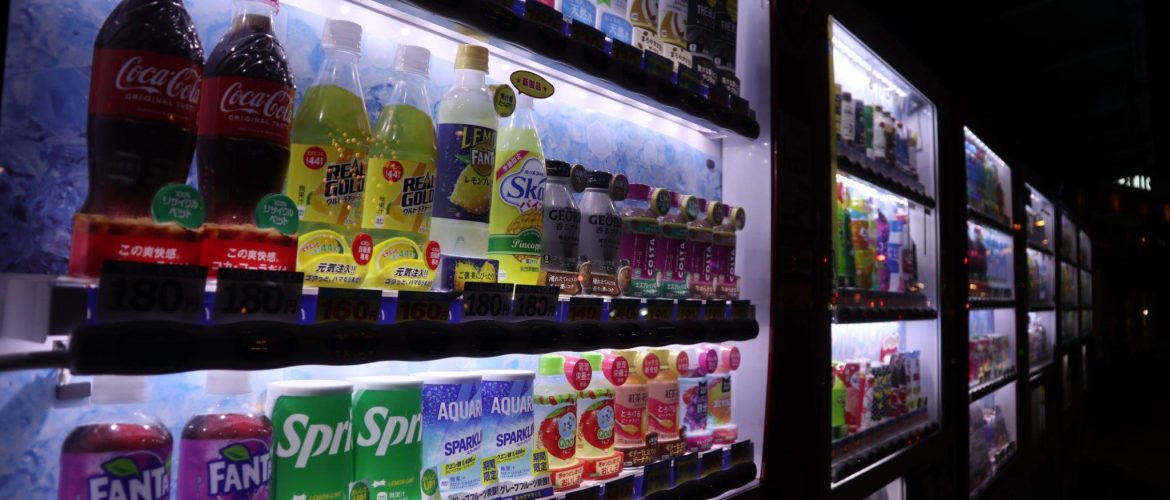Vending machines have become a ubiquitous sight in workplaces across Dallas, Texas, offering convenience and accessibility to a range of snacks and beverages. However, one prevalent trend observed in these vending machines is the prevalence of junk food options. Employees in Dallas, TX, like many others around the world, often find themselves drawn to these sugary, salty, and calorie-laden treats. In this article, we will delve into the reasons behind employees’ cravings for junk food in vending machines, explore the psychological and environmental factors that contribute to this phenomenon, examine the impact of stress and long work hours, and discuss strategies to promote healthier snack choices.
- Psychological Factors
a. Comfort and Stress Relief: Junk food often provides a sense of comfort and relief from stress. In the fast-paced and demanding work environment of Dallas, employees may resort to familiar and comforting snacks to cope with work-related pressure.
b. Emotional Eating: Employees may turn to junk food as a form of emotional eating, seeking comfort or distraction from negative emotions such as boredom, anxiety, or frustration during work hours.
c. Instant Gratification: Junk food in vending machines offers immediate gratification due to its convenience and availability. Employees may opt for these quick and easy snacks, especially during short breaks when time is limited.
- Environmental Factors
a. Ubiquity of Vending Machines: Vending machines are prevalent in workplaces across Dallas, making junk food easily accessible and tempting for employees throughout the workday.
b. Eye-Catching Marketing: Junk food packaging and branding often employ bright colors and captivating visuals, enticing employees to choose these items over healthier options.
c. Social Norms: Employees may be influenced by their peers’ choices when using vending machines. If colleagues frequently opt for junk food, it can create a normative influence that encourages others to do the same.
- Impact of Stress and Long Work Hours
a. Stress and Cravings: High-stress levels can trigger cravings for high-calorie and high-sugar foods. In demanding workplaces, employees may unconsciously seek comfort in junk food to alleviate stress.
b. Time Constraints: Long work hours can limit employees’ time and energy to plan and prepare healthy meals or snacks. As a result, they may resort to the convenience of vending machine options, which often lean towards unhealthy choices.
c. Lack of Alternatives: In workplaces with limited access to healthy food options, employees may feel compelled to choose junk food from vending machines due to the lack of better alternatives.
- Cultural Influence
a. Food Culture: Dallas, TX, like many regions in the United States, has a food culture that includes a wide range of indulgent and flavorful dishes, including various junk food items. This cultural influence may normalize the consumption of junk food.
b. Celebrations and Social Events: In workplace settings, celebrations and social gatherings often involve the availability of junk food treats. Employees may associate these items with positive experiences and festivities.
- Brain Response to Junk Food
a. Pleasure Response: Junk food, with its high levels of sugar, salt, and fat, triggers the brain’s reward centers, leading to feelings of pleasure and satisfaction. This pleasure response can create an addictive cycle, encouraging repeated consumption.
b. Lack of Satiety: Junk food may not provide long-lasting feelings of fullness or satiety, leading employees to consume larger quantities or seek additional snacks.
6. Promoting Healthier Snack Choices:
- Diverse Vending Options: Vending machine providers in Dallas can curate a wide array of healthier snack choices to provide employees with more nutritious options. This includes fresh fruits, whole-grain snacks, nuts, yogurt, and low-sugar beverages.
- Visible Placement: Placing healthier snacks at eye level and in prominent locations within vending machines can attract employees’ attention and encourage them to make better choices.
- Nutritional Information: Displaying clear and concise nutritional information on vending machine items can empower employees to make informed decisions about their snack choices.
- Workplace Wellness Programs: Employers can implement workplace wellness programs that educate employees about the importance of healthy eating and provide resources for healthier snacks and meals.
- Subsidized Healthy Options: Employers can consider subsidizing the cost of healthier vending machine items, making them more affordable for employees.
- Create a Positive Food Environment: Employers can create a positive food environment by offering healthy snacks in breakrooms and cafeterias and limiting the availability of junk food during social events and celebrations.
- Mindful Snacking: Encouraging employees to practice mindful snacking can help them become more aware of their cravings and make conscious choices about their food intake.
Conclusion:
Employees in Dallas, TX, like many others around the world, often crave junk food in vending machines due to psychological factors, environmental influences, and the impact of stress and long work hours. The availability and convenience of these snacks, combined with their addictive nature, can make it challenging for employees to resist these temptations.
To promote healthier snack choices, vending machine providers, employers, and workplace leaders can implement strategies such as offering diverse vending options, providing nutritional information, and creating a positive food environment. By prioritizing employee well-being and fostering a culture of health-consciousness, businesses in Dallas can help employees make more informed and healthier choices when it comes to their workplace snacks.

